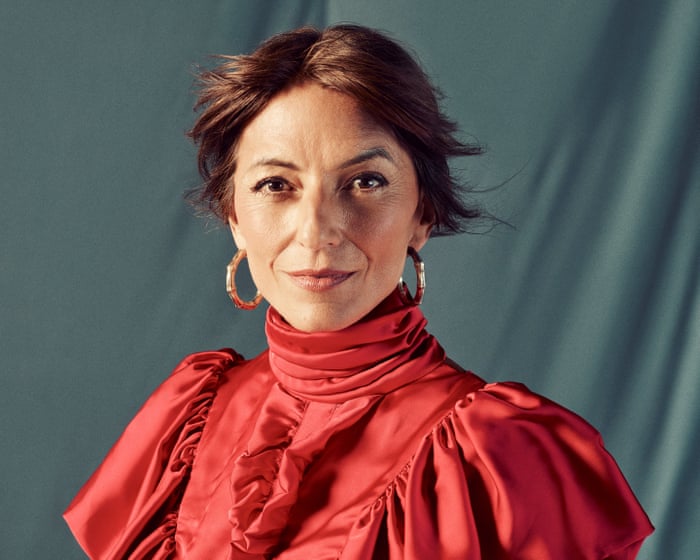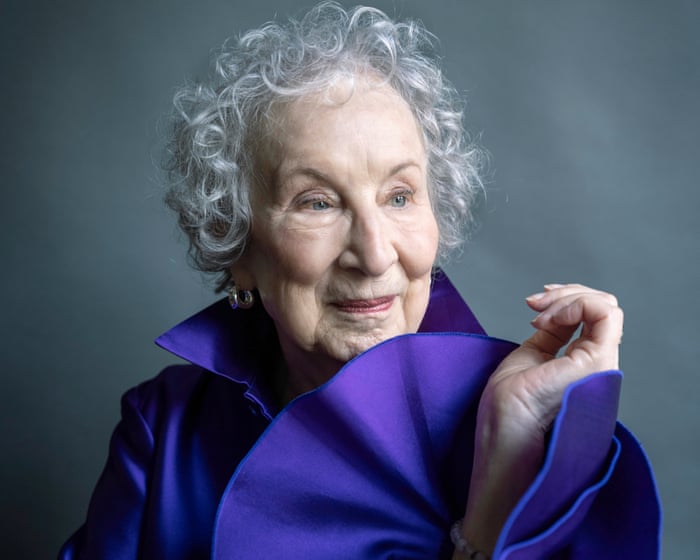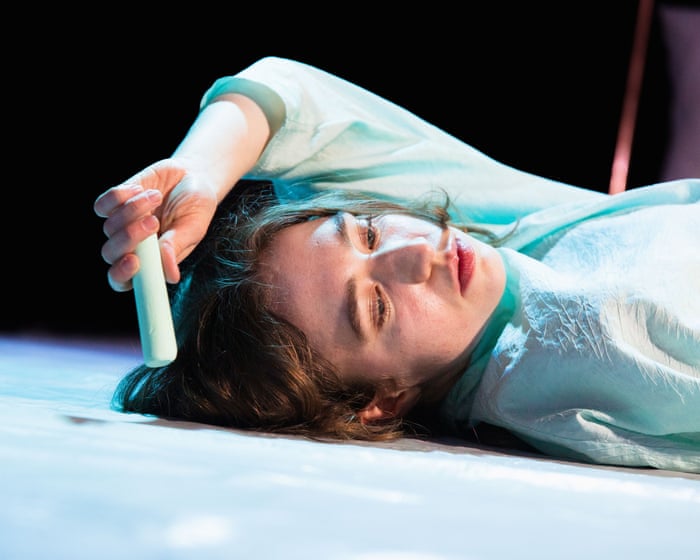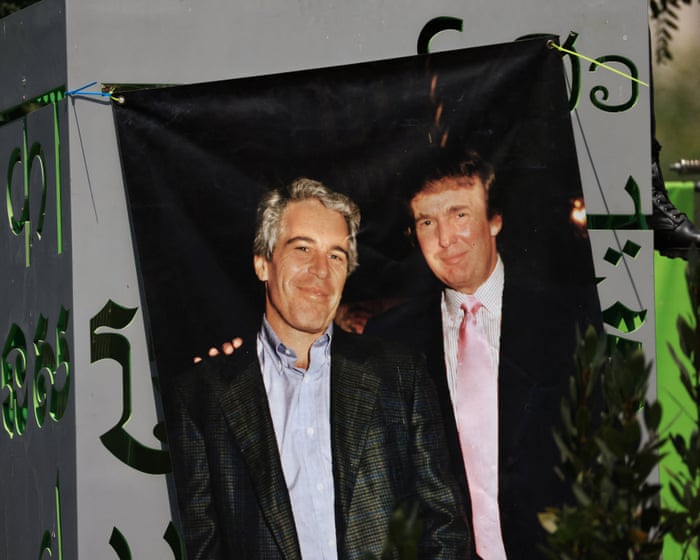It all starts with the coil. Of course it does. This is Davina, and Davina McCall doesn’t do anything by halves. “I loved the coil, but people always used to say, ‘I’m not getting the coil, ugh.’ I always wondered why it wasn’t more popular.” So, in June 2023, McCall was getting her preferred method of contraception replaced—on TV, naturally, for a documentary. “I asked my children’s permission. ‘Can Mummy get her coil refitted on television?’ They all rolled their eyes, like: ‘God! Here she goes again.’”
After the procedure, her friend Dame Lesley Regan, a gynaecologist, suggested McCall have a health screening at the state-of-the-art women’s health clinic where she worked, in exchange for a talk McCall would give on menopause. To be honest, McCall thought the idea was ridiculous. “I was like: ‘Honestly, I don’t need that. I’m the healthiest woman you’ve ever met. I don’t go to the doctor, I have a good immune system, I eat well.’”
It’s now been 10 months since McCall had her brain tumour removed. Although benign, the colloid cyst was huge. If left untreated, it could have eventually killed her. The TV presenter says she’s still trying to process everything: how lucky it was that it was spotted; what could have happened if it hadn’t been, or if she had refused the surgery (she almost did); and how her brain has been changed.
We meet at a studio in London where she’s having her photo taken. She arrives wearing a candy floss-coloured shirt, black skort, and an Ibiza tan. She looks incredibly fit, like she could finish a triathlon before breakfast. Today, at 57, McCall’s addiction is health and fitness. It used to be alcohol and heroin.
‘I looked at my life and thought: have I done everything I want to do? And I thought: yeah, I have.’ Dress: Claire Mischevani. Earrings: Giovanni Raspini
I’ve never met McCall before, but within seconds I feel I’ve known her forever. And in a way, I have. McCall is one of the few celebrities whose public persona is pretty much the same as their private one. She grabs my hand and leads me to the sofa where we’re going to talk. I feel like a contestant on Big Brother, which she presented for 10 years and 16 series (including the celebrity version). I half expect her to tell me that we’re live on Channel 4, so please don’t swear. In fact, this is probably the biggest difference between the TV and real versions. The real McCall swears like a sailor.
She stares at my bag disbelievingly as I pull out a second recorder. “Fucking hell, you taping me in stereo?” McCall is a great talker. You could turn on two recorders, pop out for a couple of hours, and she’d fill them with spellbinding, if sometimes crude, stories. Her tales (and there are many) always go off on tangents. And the tangents usually have their own tangents. So, somehow, she moves from the coil to The Lowdown (“It’s this amazing website, like a TripAdvisor for your vagina”), to the respect she has for her children’s privacy (“I’ve never posted any pictures of my son. He didn’t choose to be famous; I did”), her desire to shock as a teenage girl, Donny Osmond, her years at MTV, before getting back to the coil (about an hour later) to explain how it led to her diagnosis.
McCall was working as a judge on the TV series The Masked Singer when she got her diagnosis. She was told only about three people in a million get a colloid cyst, a non-cancerous fluid-filled sac that typically develops in the brain’s third ventricle. She was shocked, but the word she heard loudest was “benign.” In that case, she told herself, she didn’t have to do anything about it. She agreed to speak to a couple of brain surgeons, but her starting point was that they wouldn’t be operating on her. “I spoke to an amazing surgeon in America and said I need an honest opinion.””Parties, dancing, chatting—I loved it.” She was running her own club nights, often out drinking heavily, and developed a serious drug problem. “I was heading down a dark path with heroin and cocaine, and I was a mess.” How bad was it? “I don’t want to downplay my heroin use. Just because I wasn’t injecting doesn’t mean it was safe. It really ruined my life. Everything was falling apart. I left my boyfriend because I blamed him for my drug use, but it wasn’t his fault. After I left, things got worse. Maybe I was the reason he was using too.”
She describes herself as a contradictory mess—conscientious yet wasted, ecstatic yet miserable, the life of the party but deeply lonely, both permissive and puritanical. “I was half nun, half wild child. Part of me was the good girl: compliant, studious, with strong morals and manners, full of love. The other half was a maniac.” She had no idea what she wanted to do with her life.
Then, at 19, MTV contacted a group of well-known clubbers, including her, to help with the launch of MTV Europe. Their role was to entertain celebrities on the journey from London to Amsterdam, where the launch party was held, and throughout the night. “By the end of that night, I thought, ‘Oh my God, I’ve found my calling. I have to work for MTV!'”
She bursts with enthusiasm, Davina-style. What made it so special? “It was just insane. Everyone at MTV was under 25. All the biggest bands of the time were on that plane—Duran Duran, Sigue Sigue Sputnik. I think Donny Osmond was there too. I love Donny.” I mention how much I liked him when I met him. “Oh my God, isn’t he the loveliest man?! I sat next to him on The Masked Singer, and he was my poster boy.” She points to her legs. “What?” I ask. “I’ve got goosebumps.” And they’re clearly visible.
She pauses, shifting from hyper to unexpectedly somber. “Nobody really understood what it meant for me to sit next to Donny. All the people in my life who would have gotten it—my sister, my dad, my granny—had passed away.” Moments later, she perks up again, energy restored. “After that MTV trip, I knew I wanted to work there.”
Was it the celebrity access that drew her to MTV? “No, it was the vibe, the energy. It felt like if you had an idea and pitched it to someone at MTV, they’d say, ‘Let’s do it.’ I remember when Robbie Williams had just left Take That, and they decided to do a two-hour special in just an hour! It was thrilling to be around.”
But there were two hurdles: MTV wanted to hire presenters from Europe, and McCall was too much of a wreck to hold down a steady job. At 25, she got clean. She says she had to quit alcohol before she could even think about giving up drugs. What drew her to heroin? “You use heroin because you’re deeply insecure, and part of being an extrovert is masking that insecurity. Heroin feels like a hug—it tells you you don’t need anyone or anything, that everything’s okay.”
Sobriety quickly paid off. “Amazingly, six months after getting clean, MTV called me for a screen test—something I’d been trying to get while I was still using. If I’d gotten it back then, I would have messed it up.” She hasn’t touched alcohol or drugs since, and she’s never been out of work.Enter your email address and sign up.
Privacy Notice: Our newsletters may include information about charities, online advertisements, and content sponsored by third parties. If you don’t have an account, we’ll create a guest account for you on theguardian.com to send this newsletter. You can complete full registration anytime. For details on how we handle your data, please see our Privacy Policy. We use Google reCAPTCHA to protect our site, and the Google Privacy Policy and Terms of Service apply.
After the newsletter promotion:
McCall quickly became the queen of reality TV. She brought something unique—fun without going over the top, sincerity without being overly sweet, humor without taking over, and, most importantly, she genuinely seemed to love her work and care about the people on the shows. You got the sense she would have been just as happy as a contestant as she was as the host.
View image in fullscreen: ‘I’m an amplifier. I take good news and spread it everywhere.’ Coat: Richard Quinn. Ring: Laura Vann
Her work over the past 30 years has been remarkably consistent. These days, she’s promoting Stranded on Honeymoon Island, a new dating show that blends elements from other dating programs—contestants have to marry (though it’s not legally binding) and then spend time together on a desert island. Her first show, Streetmate, was one of the earliest in the genre. It featured McCall approaching strangers in various locations, asking if they were single and interested in her finding them a date. This involved the contestant pointing out someone they fancied on the street, and McCall playing matchmaker. It was simple, bold, and had far more energy than most of today’s shows, including the first episode of Stranded.
I mention that I watched an episode of Streetmate earlier. “Oh my god, which one? Which one?” she replies, full of energy. I tell her it was the one where the woman calls the man a laddish loser, says he has no chance, but they end up together. “Oh my God! So good,” she says, panting with excitement and laughing. “You know, I almost did Streetmate again when it came back in 2017, but they changed their minds and went with Scarlett Moffatt instead. I loved that show. It was amazing.”
But it was Big Brother, the groundbreaking Channel 4 show where strangers lived together in a house under constant surveillance, that really made McCall’s name and what she’s still best known for. The first few seasons were gripping, and McCall was a standout, especially when collecting newly evicted contestants with her catchphrase: “Big Brother house, this is Davina. You are live on Channel 4; please do not swear. You have been evicted. I’m coming to get you.”
The first series of Big Brother was huge—a serious TV show that the broadsheets analyzed, treated like a psychological experiment. McCall adored Big Brother then and still does. “The first series was mega. I remember thinking, oh my God, the broadsheets are talking about us. I’d never been on a show that got that kind of attention. It was so good.”
She talks about some of her favorite contestants: Anna Nolan, the Irish woman who trained as a nun and whom she’s still friends with (“We share the same birthday!”); Pete Bennett, who has Tourette syndrome; Helen “I like blinking, I do” Adams, who fell in love with Paul Clarke on the show; Nikki Grahame (“She was fucking great—so brilliant, funny, and full of life”); and Jade Goody, both of whom died tragically young; and Chantelle Houghton, who had to pretend she was famous in the Celebrity Big Brother house. She’d still be listing names if I hadn’t stopped her.
I tell her that when I interviewed Pete, we were both in bed (no, I can’t remember why) and show her the photo. She howls with delight. “Awwww, that’s so fucking great. Oh my God! That’s amazing.”It’s so iconic. Oh my god, sweet!
Big Brother was full of controversies—there was constant rowdiness, fights, and a racist incident where Jade Goody called Indian contestant Shilpa Shetty “Shilpa Poppadom,” and two other housemates used racist language. In series five, fake evictions led to a huge fight involving most of the contestants. “Fight Night was pretty scary—we had to send in security,” she says. “No one expected it to escalate like that. We learned as we went along. Now they don’t allow as much alcohol as they used to. Back then, you could get booze whenever you wanted.” Was alcohol the cause of the problems? “That’s what they concluded in the end. That’s why they started locking it away.”
How did she handle the racist incident? “I felt I owed it to them to let them know we were aware of what happened, without trying to trap them. So off-camera, we told them we’d seen the racist remarks and gave them a chance to make things right. We were trying to protect them.” She admits that safeguarding was basic back then. “They were booed on their way out. It was scary for them. Usually when people got booed, it felt like pantomime, but that night was different. We’d asked those girls to go on the show. I felt responsible for that.”
I mention that my younger daughter, Maya, who used to love reality shows like Big Brother, thinks they’re more like “unreality” shows now—full of artifice and scripted moments, with contestants who all look the same after surgery and are just influencers. We decide to call Maya so she can share her thoughts.
“I totally agree,” McCall says into the phone. “Completely. Reality TV has been around so long it’s not real anymore. People know what to expect and how to prepare, so it doesn’t feel authentic. I think safeguarding is part of it too. The original versions felt real because they had people from all walks of life who weren’t used to being on TV. They joined for the experience. But after some incidents, producers got nervous about safety and started casting people more familiar with television.”
Maya and McCall chat about their favorite contestants. “Lovely to meet you! Bye!”
McCall insists it’s still impossible to fake it on Big Brother because the cameras will catch you out. “Spending eight weeks in a house with no outside contact is really fucking hard. After a week, even celebrities forget the cameras are there.”
She brings up My Mum, Your Dad, a dating show she hosted for older people looking for love. She says it’s an example of a show that still feels real. I point out that all the contestants were unusually attractive. “They had normal bodies, though—not a lot of plastic surgery, and they had real-life baggage. But we stopped after two series because no one watched it.” Why? “I don’t know. Maybe they weren’t young enough, or there wasn’t enough sex.”
Was she upset it didn’t get viewers? “The people who did watch it became obsessed, and it was critically acclaimed. I’ve been in this industry long enough to know that sometimes you create something you love, and it just doesn’t find an audience.”
In recent years, McCall has taken on more of an educator role, starting with books on fitness and diet. In 2022, she published the bestseller Menopausing. “I went through menopause at 43 and started talking about it when I was 45 or 46. I was surprised that something all women experience was so poorly understood.” Menopausing was named Book of the Year at the 2023 British Book Awards.
She says…She no longer considers herself primarily a presenter. So what would she call herself now? “I’d say I’m an amplifier,” she explains. When asked what that means, she says, “I take good news and spread it everywhere. Or you could call me an information highway.” How long has she been an information highway? “Since menopause.”
She had wanted to write a book about childbirth for two decades, but publishers didn’t think Davina McCall and pregnancy were a marketable combination. Ironically, in her late 50s, they finally gave her the green light. “I wanted to write this book 18 years ago when my son was born, but they thought it was a strange, offbeat idea. After I wrote the menopause book, people asked, ‘What would you like to do next?’ And I said, ‘Yes! Now I can’t give birth anymore, but I can write about it!'”
As she speaks, I notice a tattoo on her wrist and ask about it. “Oh, this is for my sister Caroline, who passed away. And this one is for my other sister, Milly.” Does she have any other notable tattoos? She lifts her skort to reveal an alien on her bottom. “I went to America for MTV, and they wanted to film me getting a tattoo, so I decided to get HR Giger’s Alien.” Was that her first tattoo? “No.” She shows me her left wrist. “It’s supposed to be a rose, but I think it looks like a vagina with a pair of bollocks. That’s why I added a stalk to make it look more like a flower.”
We’ve been talking for over two hours. As I get ready to leave, I mention that I had encephalitis as a child and felt like a completely different person afterward. “Yes!” she nods enthusiastically. “I think I’m just learning who I am without Jeffrey.” What’s changed? “When I woke up after the operation, I didn’t know what country I was in or that I’d had surgery. I didn’t know anything. But I do remember waking up and thinking, ‘Oh my God, the noise. The noise in my brain,’ and I later realized those were thoughts.”
What does she mean? She explains that she used to be full of questions about how and why things worked. They were often silly or trivial—like what heel height is most comfortable for women, or how to best describe the color of her shirt—but they were still thoughts. “I asked Michael twice in the year and a half leading up to my tumor diagnosis, ‘Do you always think?’ And he said, ‘Yeah, I’m always thinking.’ I remember saying to myself, ‘I used to be like that.'”
About five years ago, she says, she stopped asking herself questions. “I’d stopped thinking, and I’m sure that was a symptom of the tumor.” Now, McCall is acutely aware of the noise in her head, of those thoughts bouncing around, and she couldn’t be happier about it. “I feel like I’ve got myself back,” she says.
Stranded on Honeymoon Island is on BBC One and iPlayer. Birthing by Davina McCall is published by HQ on September 11 (£22). To support the Guardian, you can buy a copy at guardianbookshop.com. Delivery charges may apply.
Frequently Asked Questions
Of course Here is a list of FAQs based on Davina McCalls quote and her story presented in a clear and natural tone
General Beginner Questions
Q Who is Davina McCall and what is she famous for
A She is a wellknown British TV presenter best known for hosting the UK version of the reality show Big Brother for over a decade
Q What did she mean by I wasnt afraid of dying but I couldnt bear the thought of leaving my children behind
A She was explaining that during her addiction her own life felt less important but the love for her children was the powerful motivation she needed to finally seek help and get sober
Q What was Davina McCall addicted to
A She struggled with addiction to heroin and cocaine in her twenties before she became a famous TV presenter
Q Is she still sober now
A Yes She has been in recovery and sober for many years often speaking openly about it to help others
Deeper Advanced Questions
Q How did her career in reality TV impact her recovery
A Her career took off after she got sober Hosting intense live shows like Big Brother required immense stability which her recovery provided It became a testament to her new life
Q What are the common challenges for parents recovering from addiction
A Major challenges include dealing with guilt and shame over past behavior rebuilding trust with their children and balancing the stresses of parenting with the ongoing work of maintaining sobriety
Q Can you explain the concept of a turning point in addiction recovery using her quote as an example
A A turning point is a moment of clarity that motivates change Her quote perfectly captures this the profound fear of the consequences of her addiction became stronger than the addiction itself pushing her toward recovery
Q How does her story help reduce the stigma around addiction
A By a successful beloved public figure speaking so honestly it shows that addiction is a disease not a moral failing It can affect anyone and recovery is possible which encourages others to seek help without as much shame
Practical AdviceBased Questions
Q What is the main takeaway from her story for someone struggling with addiction
A That finding



